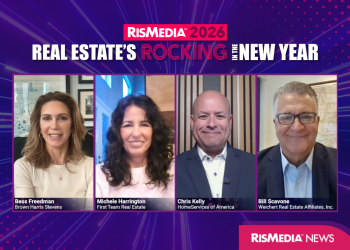In a statement released this morning, the National Association of Realtors® (NAR) appeared to defer on the question of whether Zillow’s new ChatGPT app complies with MLS policies regarding use and display of data, as real estate continues to grapple with big questions around AI technology.
“For enforcement, each MLS is individually responsible for conducting its own assessment of technologies that use and display MLS data. This includes considering known public information and determining whether the MLS needs more information from the parties involved or otherwise as part of its evaluation assessment,” NAR wrote in a statement shared with RISMedia.
The statement does little to clarify the status of the new app, which Zillow has asserted is in compliance with MLS rules. OpenAI (the company behind ChatGPT) earlier this month added apps within the AI ecosystem, allowing users to access and utilize services like music streaming service Spotify, travel site Expedia—and Zillow—without ever leaving the ChatGPT infrastructure.
Some real estate professionals expressed concern, positing that OpenAI is now hosting MLS data through Zillow, even though OpenAI is not party to any of the agreements Zillow has with MLSs—which Zillow has said is not how the app works.
Zillow has described the app as “a visual interactive experience that brings Zillow directly into ChatGPT” including necessary disclosures, attributions and disclaimers.
“Zillow has 100% control over the app experience, which protects MLS data and maintains IDX compliance,” Zillow previously wrote on its website, further describing the app as a “Zillow-controlled display that is MLS-compliant inside ChatGPT.”
NAR struck a generally positive tone in its statement, even as it declined to endorse the technical aspects of the partnership.
“Implementing and integrating new technologies, like artificial intelligence (A.I.), into the home-buying and selling process has the potential to better serve consumers by enhancing the exposure of MLS listings and improving property search. Provided the use of technology is in accordance with MLS rules and data license agreements, NAR recognizes the importance that innovation plays in fostering more transparent, competitive, and fair housing markets,” the organization wrote.
NAR also noted that “the display of MLS data on mobile apps is permitted under the existing IDX policy.”
At least superficially, though, the process by which listing data can be accessed blurred lines. ChatGPT users can simply ask for Zillow to show particular properties or perform searches—though Zillow promised that followups like scheduling a tour would “happen within Zillow.”
But Zillow also claims that explicitly the app complies with MLS “standards for data usage,” promising that it “worked closely with industry stakeholders.”
In its statement, NAR essentially declined to co-sign this, telling MLSs to figure it out for themselves.
“To determine if Zillow’s ChatGPT application complies with IDX policy, an MLS should consider things such as whether MLS data is being transmitted to an unauthorized party, if the displaying Participant maintains ‘control’ over their display, and if the display fulfills the disclosure and display requirements outlined in local IDX rules,” NAR wrote.












